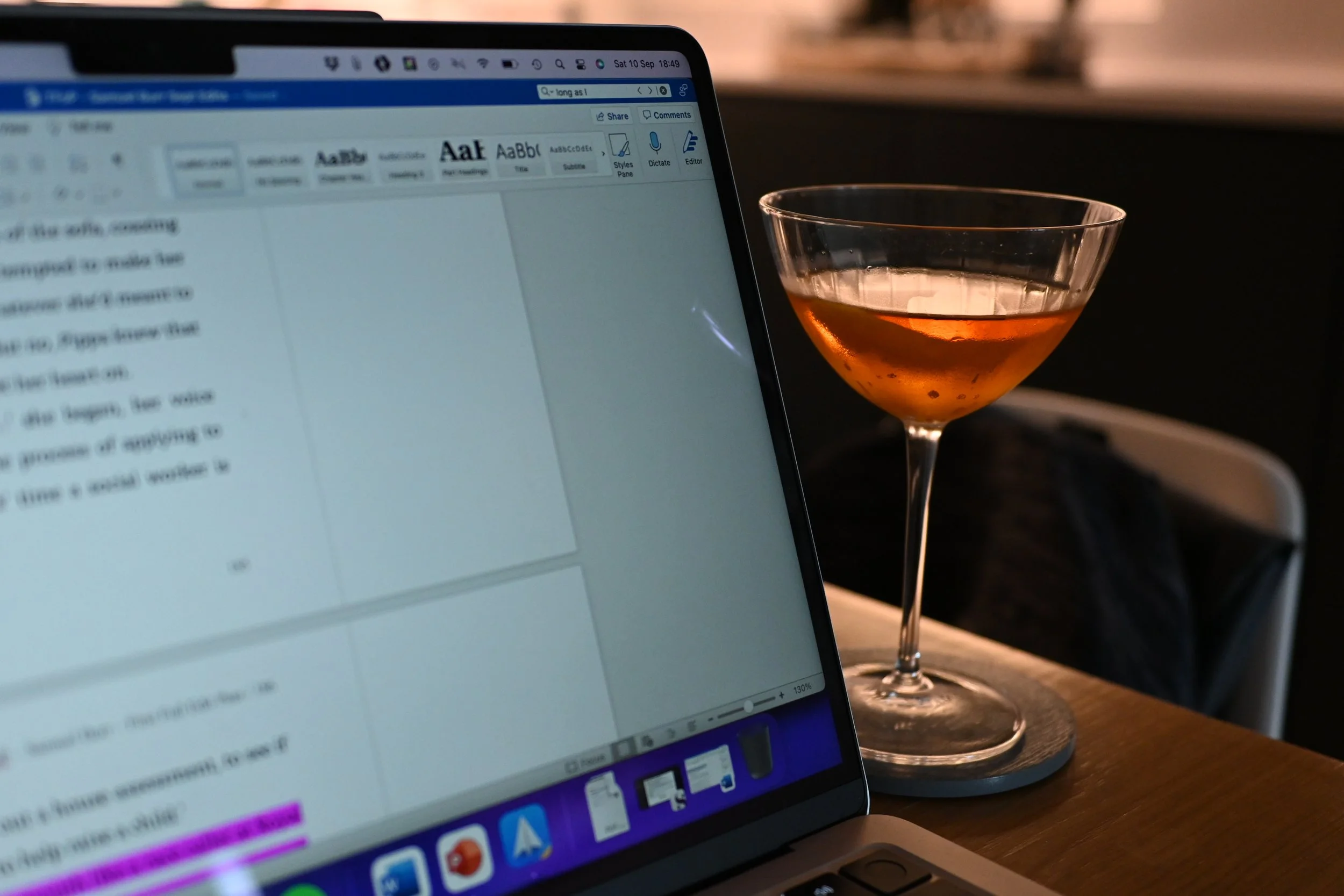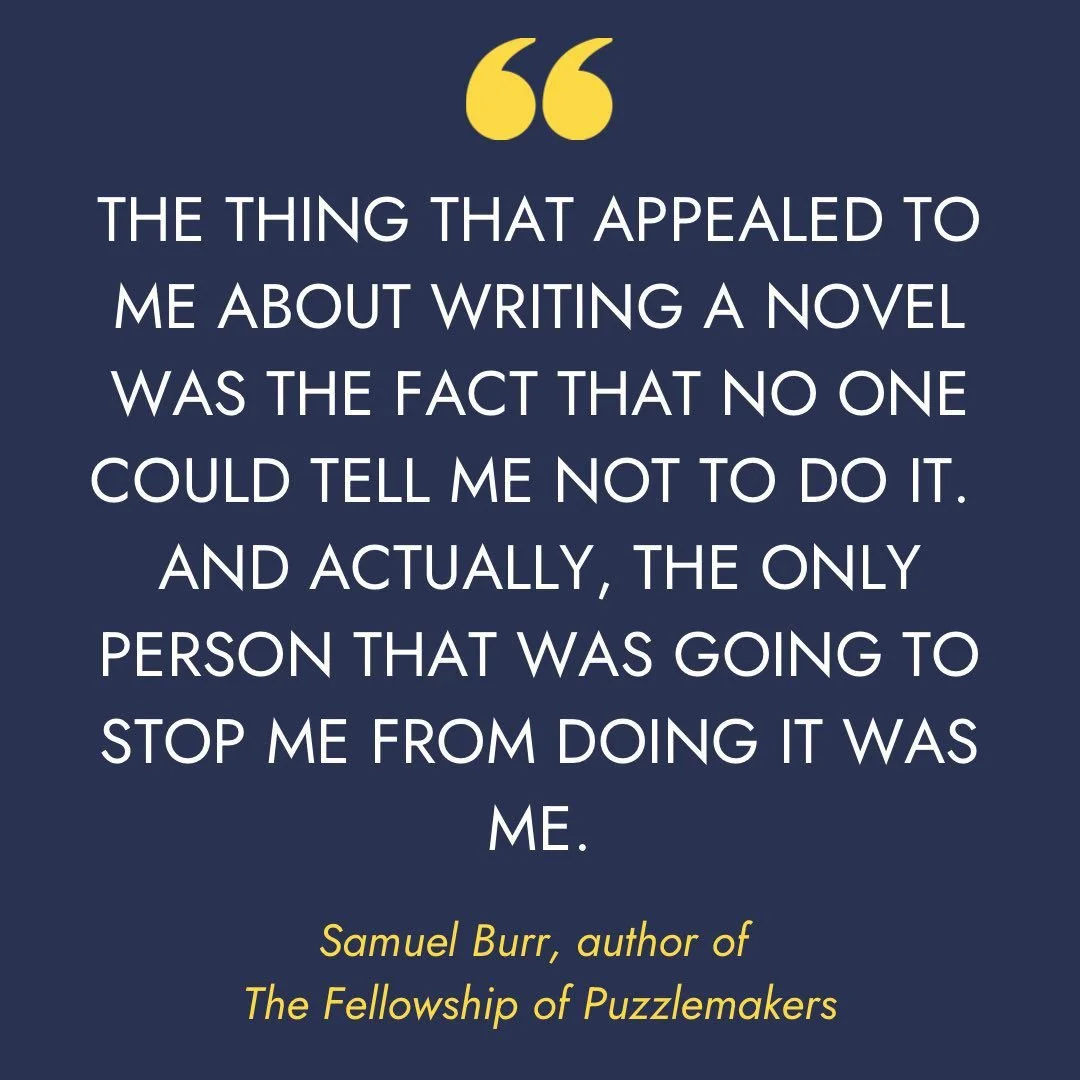FAQs
Why do you write?
I write because no one can tell me not to! My background is in TV production where, in order to get one of my ideas greenlit, I’d need approval from countless people and a million-pound budget signed off before we could even take the lens cap off the camera. The wonderful thing about writing is that you – the writer – are the only person who’s going to make it happen, or not. It’s all in your control. Of course, what happens next (when you reach the publishing side of things) is different, but at least by that point, the story exists in the world. You’ve made something out of nothing!
Can you tell us about the inspiration behind Puzzlemakers?
Like most novels, it’s hard to pinpoint a single idea, person or story that inspired the book. But there is a moment that stands out as being particularly significant. When I was nineteen, I made a documentary inside a retirement village. I was at film school in London and wanted to practice my filming and interviewing skills during the half-term break. Along with another student, I borrowed a camera and tripod and set off to live in the village for a week, making friends with all the residents and learning their stories. It was a fascinating experience, not least because at eighteen years old, we were completely exhausted by their busy social lives. They were always doing different activities! I remember, at the end of the week, looking forward to getting home and putting my feet up. There was something intrinsically funny about the idea of a pair of teenagers being immersed in such an old community, but feeling older at heart than the people they were living alongside. I think I’ve always been a bit of a young fogey if I’m honest. I love Antiques Roadshow, always have boiled sweets in my pockets, and rarely listen to anything but Radio 4. This book . . . and Clayton himself . . . has taught me to embrace that side of myself.
To find out more about the real people who inspired the Fellowship, click here.
Why puzzles!?
The thing I love about puzzles is that they’re something we all have a connection to. Whether it’s memories of playing with a shape sorter as a child, doing a jigsaw with your grandparents, or Wordle on the tube. Puzzles are part of all of our lives. And they are pure escapism. When we’re solving puzzles we’re not thinking about anything else at all. I think that’s something we could all do with right now.
How would you describe your writing process?
Painful, chaotic and painstaking. That’s how I’d describe it. I like to plan but I’m also willing to abandon the plan should the writing lead me somewhere else. A very clever author once said that writing a novel is a bit like setting off on a long car journey. You’d be mad to get into a car and not know where you’re going. So I try to have the main beats of the narrative nailed down and a definite sense of the ending, but often it’s the unplanned diversions that create the most memorable scenes.
I share a little more about my writing process here.
The book jumps back and forth between two timelines. Why did you choose to structure it this way?
I love playing with timelines in my writing! I’ve always been interested in the idea that the journeys we take in life can sometimes be mirrored by our ancestors, so I liked the idea of writing a story where we see Pippa making mistakes and then Clayton learning her lessons!
There’s something great fun about jumping back and forth and telling a story from multiple points of view. Because it’s a mystery, it felt like the most organic way to unfold elements of the story, to reveal clues to Clay’s future by delving deeper into the Fellowship’s past.
Found family and coming of age are such big themes of Puzzlemakers. What drew you to these themes, and what do you hope readers take away from Clayton and Pippa’s stories?
I think it’s partly influenced by the stories I like to read, and what themes I find particularly emotive, but I’ve always been interested in the idea of found families, and also the importance of communities. I was inspired to write this book because I wanted to create a story that captured and celebrated the wisdom of age, to show what an incredible resource our elder community is, and how we often take that for granted.You can read more about my volunteering role and how it inspired the book here.
Like the very best puzzles, I hope it’s a novel you can truly get lost in. It’s no coincidence that, having written so much of this book during the Covid pandemic, it is a story that celebrates the power of community and the importance of combating social isolation. As the puzzlemakers like to say: ‘To go far go together’ and I hope readers will come away feeling a similar notion. No matter who your friends or your family are, we are always stronger when we’re not alone.
What is the most surprising thing you've learnt while writing your book?
One of the surprising things about writing a book is that it forces you to confront yourself in quite a profound way. I feel like I understand myself more fully, having written my debut. Puzzlemakers is of course fiction, but you can’t help but draw from your own experiences, memories, fears and dreams. I always say to aspiring writers that they should write about the thing that keeps them up at night. For me, that’s social isolation and the fact that we so often overlook the elderly in society.
What advice would you give to aspiring novelists?
Just don’t give up. It can feel like such an endless slog writing a novel but find joy in the process and there’ll be no reason for you to stop. Learn from books you love (and don’t love) and build your network. It can be an incredibly lonely pursuit, but the writing community is immensely supportive and inclusive. Get involved! If you’ve recently started writing, I share a few tips about nailing the crucial opening pages here.








